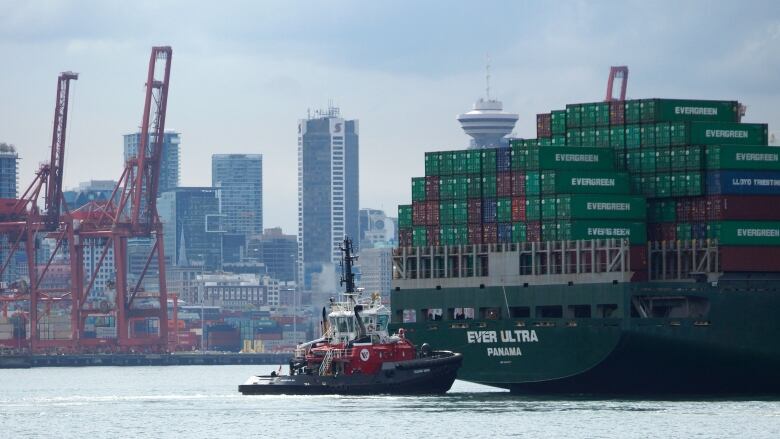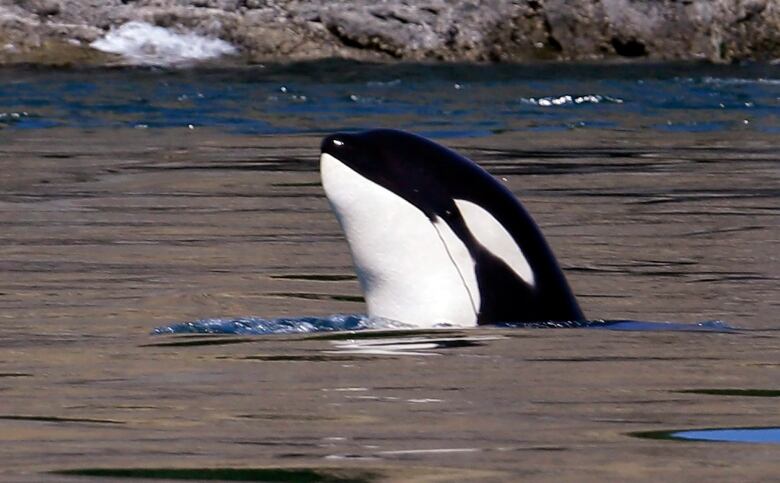Port of Vancouver to cut docking fees for quieter ships by nearly half
Incentives intended to reduce impact of harbour traffic on whales and other cetaceans

The Port of Vancouver has introduced a new incentive for shipping companies to protect local marine wildlife: ships that meet new engine noise reduction standards will have their docking fees cut by up to 47 per cent.
Duncan Wilson, vice-president of corporate social responsibility for the Vancouver Fraser Port Authority, says the potential discount couldtranslateinto savings of between $3,000 and $4,000 per visit for a medium-sized ship. Those savings could be even greater for large container and cruise ships as dues are based on vessel size.
The Port of Vancouver is the first port in the world to implement such an incentive.
"What we're doing here is very much world leading in terms of a best practice," Wilson said.

Ship noise disrupts whale feeding, communication
Wilson said the incentive is the first concrete result of the port's ECHO (Enhancing Cetacean Habitat and Observation) program, a research initiative started in 2014 to determine the effect of port traffic on whales, including southern resident killer whales.
Many whales and cetaceans use ultrasonic echolocation to hunt, navigate and communicate with each other, butloud noise from ship engines interferes with this ability.
The port's new guidelines use a two-tiered system where ships that use specific sound reduction technologies are classified as meeting bronze- or gold-level standards. Bronze-rated vessels save 23 per cent on harbour dues and gold-rated vessels save 47 per cent.
Wilson said the port has already heard anecdotally from a number of shipping organizations that plan to upgrade their fleets to meet the standards particularly companies interested in raising their environmental profile in the public eye.
"Those [noise reduction] technologies right now are probably mostly accessible to new large vessels, but there's no reason why they couldn't be employed by smaller vessels pleasure craft, ferries and others," Wilson said.
"It's also recognition that they're doing something that's good for the environment and is reducing the impact on a critical species."
The new rules went into effect on Jan. 1.
With files from Kamil Karamali












_(720p).jpg)


 OFFICIAL HD MUSIC VIDEO.jpg)
.jpg)



























































































